TiBE 2023 | Invaders on the HORIZON! Advancing Invasion Science from Genes to Ecosystems to Society
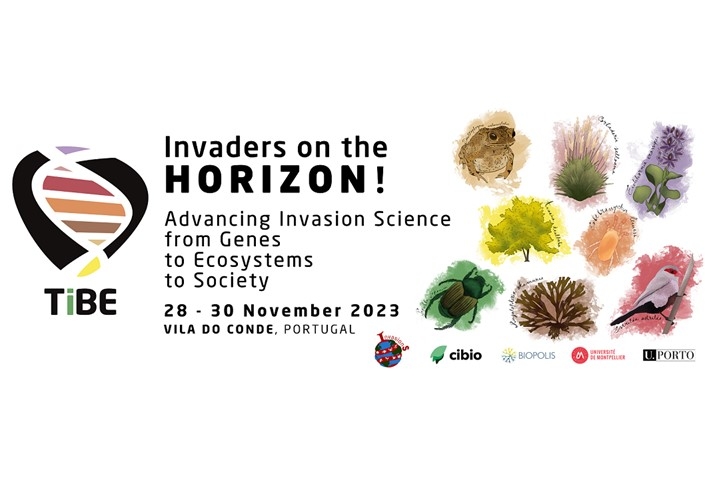
28 - 30 November 2023
TiBE, Trends in Biodiversity and Evolution Conferences, is an annual meeting (12th edition) organized by CIBIO – Research Centre in Biodiversity and Genetic Resources – InBIO Associate Laboratory (more info at https://tibe.biopolis.pt).
Aims to bring together researchers, post-graduate and graduate students working on the field of evolutionary biology to present and discuss cutting-edge findings in relevant topics related with speciation, behaviour, molecular evolution, comparative genomics, ecology, population and conservation genetics research, among others.
This year’s edition:
Invaders on the Horizon! Advancing Invasion Science from Genes to Ecosystems and Society is a scientific conference that aims to foster interdisciplinary collaboration and explore the multifaceted challenges posed by invasive alien species, a major driver of global change. With a strong focus on the genetic, ecological, and societal aspects of biological invasions, this conference provides a unique platform to exchange knowledge and insights.
By attending this conference, you will have the opportunity to engage with renowned experts, exchange ground breaking ideas, and contribute to the collective understanding of invasive species. Join us at Invaders on the Horizon! and be part of the vibrant scientific community committed to tackling the challenges posed by biological invasions!
PROGRAM
From Genes to Ecosystems
From Ecosystems to Society
IPBES IAS Assessment
The conference will also include a field visit to the Mindelo Nature Reserve and an open session, in Portuguese, for the local community.
 Helen Roy MBE Hon, FRES & Professor. Ecologist at the UK Centre for Ecology & Hydrology | |
| Her research focuses on the effects of environmental change, particularly biological invasions, on biodiversity and ecosystems. Helen leads many collaborative national and international research projects on biological invasions with a focus on enhancing information to inform understanding of the impacts of invasive alien species. Helen also enjoys science communication and public engagement with research, which led to her interest in citizen science; an approach that she has implemented in a number of contexts perhaps notably the collaborative studies she has led alongside volunteers to track the spread of the harlequin ladybird, Harmonia axyridis and other alien species. Helen leads a Defra-funded project to produce a comprehensive information portal on non-native species in Great Britain, which also includes annual reports on status and trends of invasive alien species and the development of an alert system for people to report sightings of concern. Over the last few years, she has had the privilege of working with the UK Overseas Territories to predict and prioritize invasive non-native species. Her research on invasive non-native species has received international recognition and she is currently one of the co-chairs for a thematic assessment of invasive alien species for the Intergovernmental Panel on Biodiversity and Ecosystem Services (IPBES). |
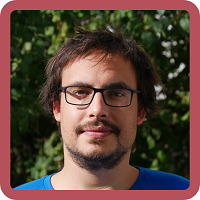 Bernd Lenzner Macroecologist and terrestrial ecologist at the Division of Bioinvasions, Global Change, Macroecology at the University of Vienna | |
| He has a strong interest in invasion science, biodiversity change and scenario research including interdisciplinary research at the biodiversity, society and policy interface. Currently, Bernd continues to work on past and future trends of biodiversity patterns and on how environmental, socio-economic and societal drivers interact from a systemic point of view using scenario approaches. In addition he is also involved in the IPBES Invasives Alien Species Assessment and conducts work related to the CBD Global Biodiversity Framework and the Agenda 2030 on Sustainable Development. He has a strong interest in invasion science, biodiversity change and scenario research including interdisciplinary research at the biodiversity, society and policy interface. Currently, Bernd continues to work on past and future trends of biodiversity patterns and on how environmental, socio-economic and societal drivers interact from a systemic point of view using scenario approaches. In addition he is also involved in the IPBES Invasives Alien Species Assessment and conducts work related to the CBD Global Biodiversity Framework and the Agenda 2030 on Sustainable Development. He has a strong interest in invasion science, biodiversity change and scenario research including interdisciplinary research at the biodiversity, society and policy interface. Currently, Bernd continues to work on past and future trends of biodiversity patterns and on how environmental, socio-economic and societal drivers interact from a systemic point of view using scenario approaches. In addition he is also involved in the IPBES Invasives Alien Species Assessment and conducts work related to the CBD Global Biodiversity Framework and the Agenda 2030 on Sustainable Development. |
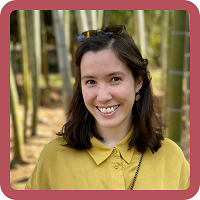 Tanara Renard Truong IPBES Assessment Coordinator | |
| Tanara is an environmental engineer, with expertise in ecology and political sciences. She has contributed to this field through her work for the Intergovernmental Science-Policy Platform on Biodiversity and Ecosystem Services (IPBES). She is the coordinator of the IPBES thematic assessment of invasive alien species and their control, as part of its technical support unit hosted by the Institute for Global Environmental Strategies (IGES). Previously, Tanara worked for the UNESCO programme on Local and Indigenous Knowledge Systems and also contributed to the work of the technical support unit of the IPBES Task Force on Indigenous and local knowledge (hosted by UNESCO). |
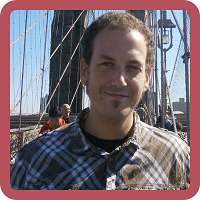 Ivan Jaric Junior Professor at the University of Paris-Saclay in France, and researcher at the Biology Centre of the Czech Academy of Sciences | |
| Ivan has a wide range of research interests, including species extinctions and extinction risk assessments, biological invasions, development of novel model-based risk assessment approaches, and social aspects of conservation science. He is also involved in conservation culturomics and iEcology, two emerging research areas focused on the use of digital data and culturomics tools within the fields of ecology and conservation science. His recent work also focused on concepts of species charisma, flagship individuals, and the societal extinction of species. |
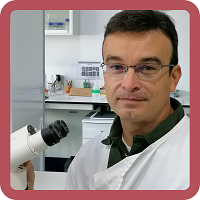 Pedro Naves Responsible for INIAV´s Acarological Laboratory | |
| Pedro Naves has a PhD in Biology (FCUL, Lisboa), being the technical responsible for INIAV´s Acarological Laboratory and working as a scientific researcher in the fields of plant protection, pest control, and taxonomy of agricultural and forest insect and mite pest, including exotic invasive species. Responsible for the detection of 12 non-native insect and mite species in Portugal. Author and co-author of scientific publications, including chapters in scientific/technical books, papers in indexed scientific journals, technical publications, and scientific reviewer of international journals. Other activities include training, technical and scientific assistance, consulting, organization of events, and education, including lecture of classes and supervision of Thesis. |
ORGANIZATION

FUNDING PARTNERS


SPONSORS

